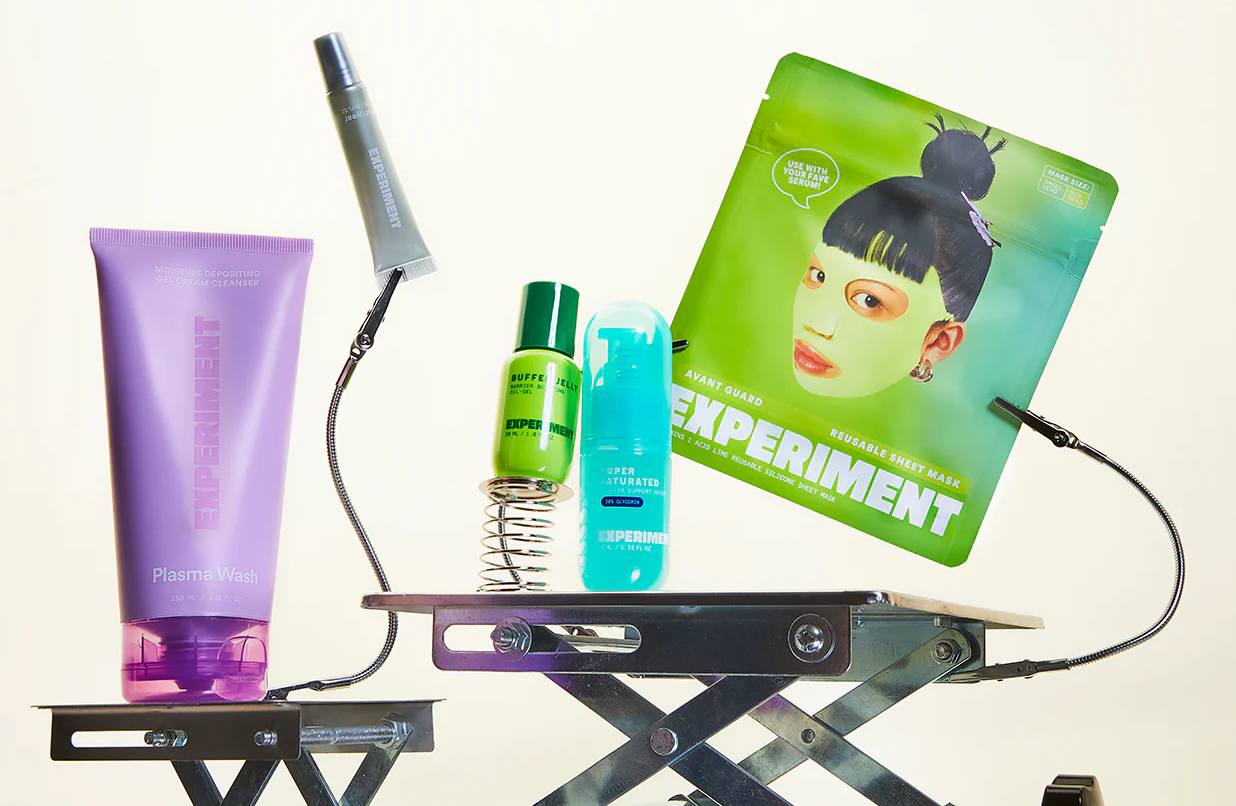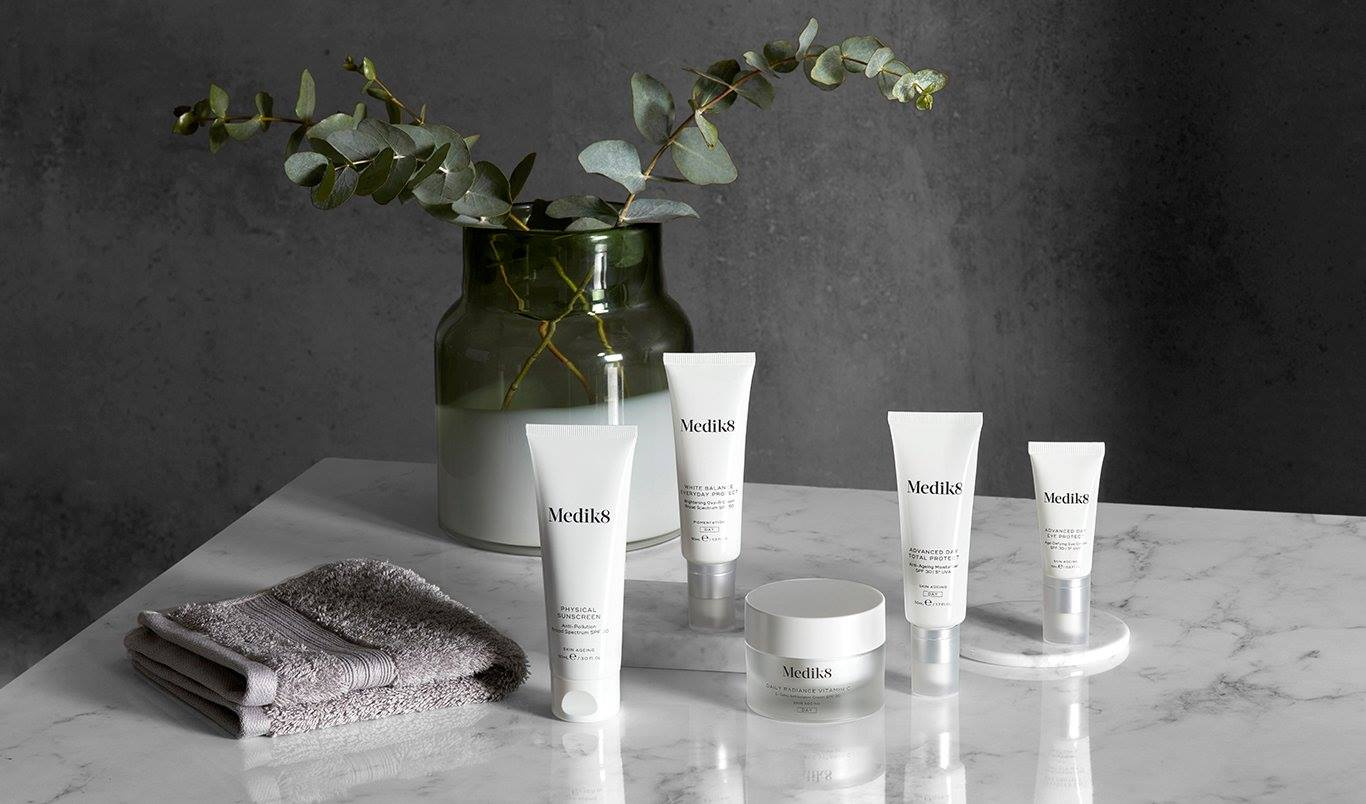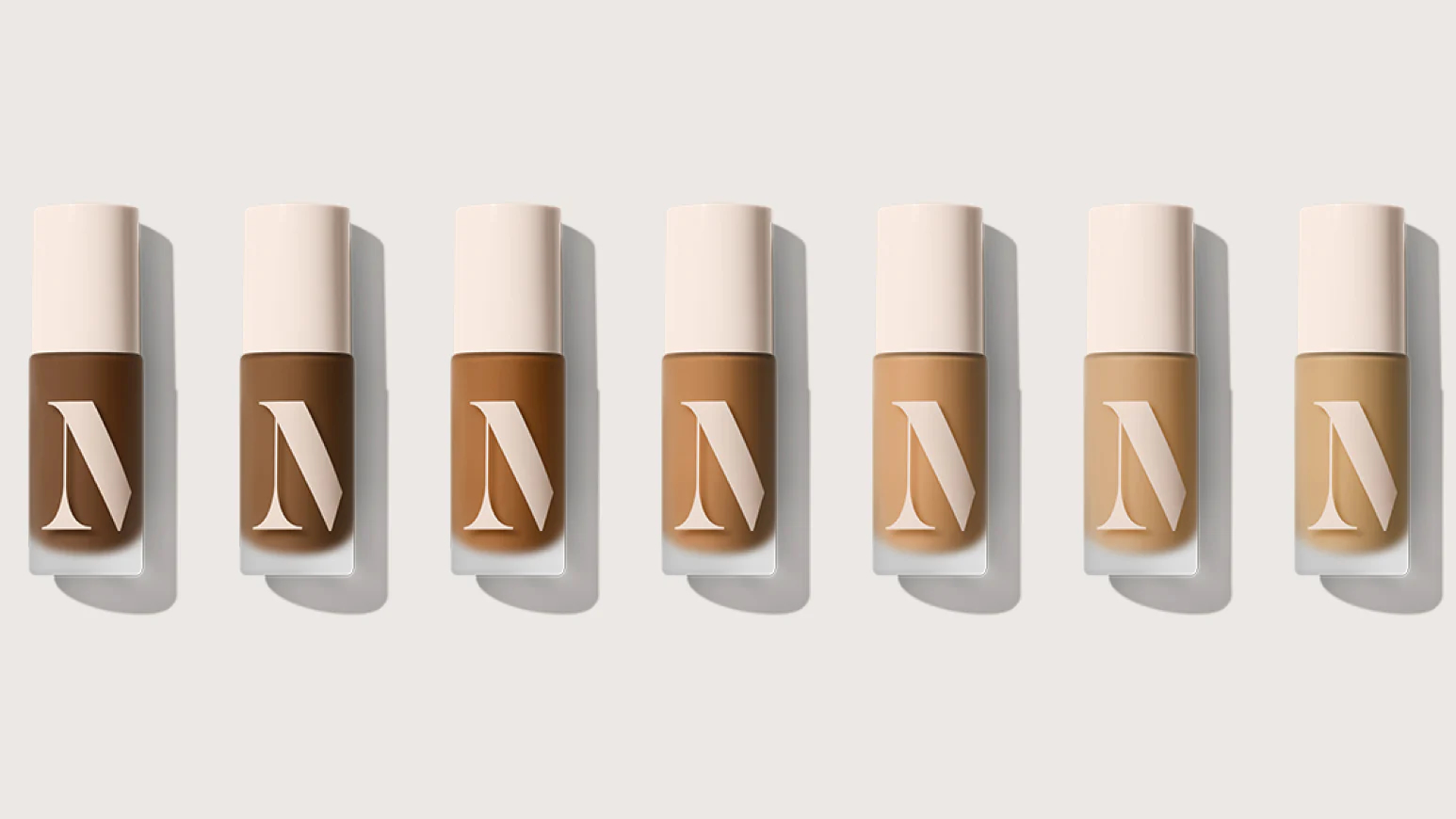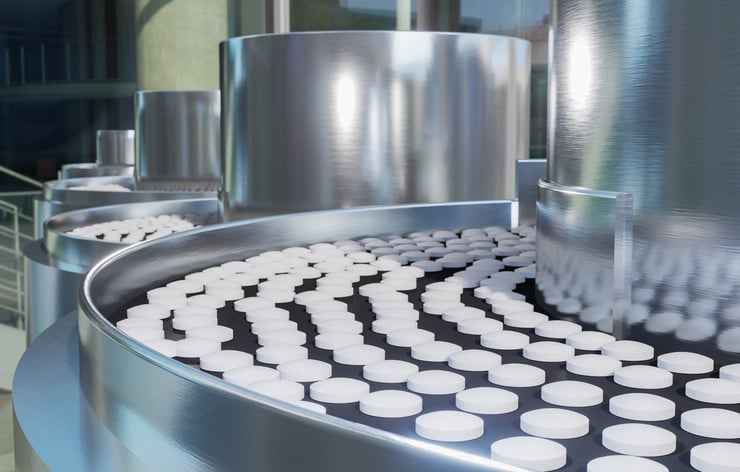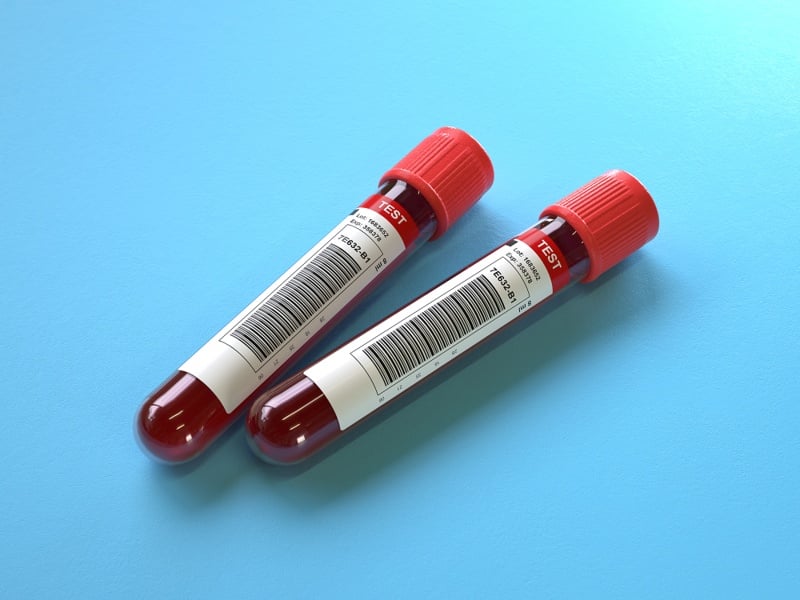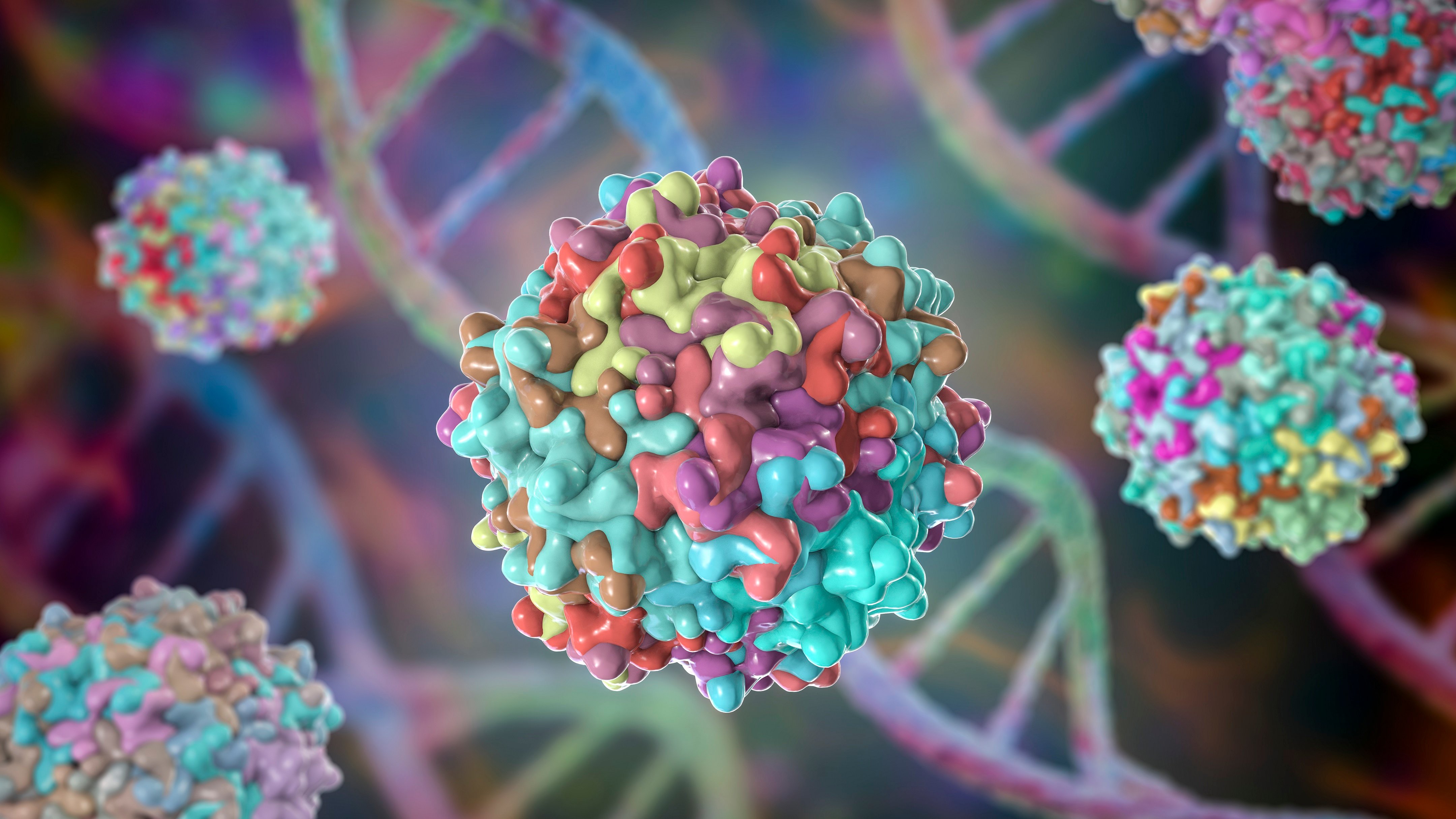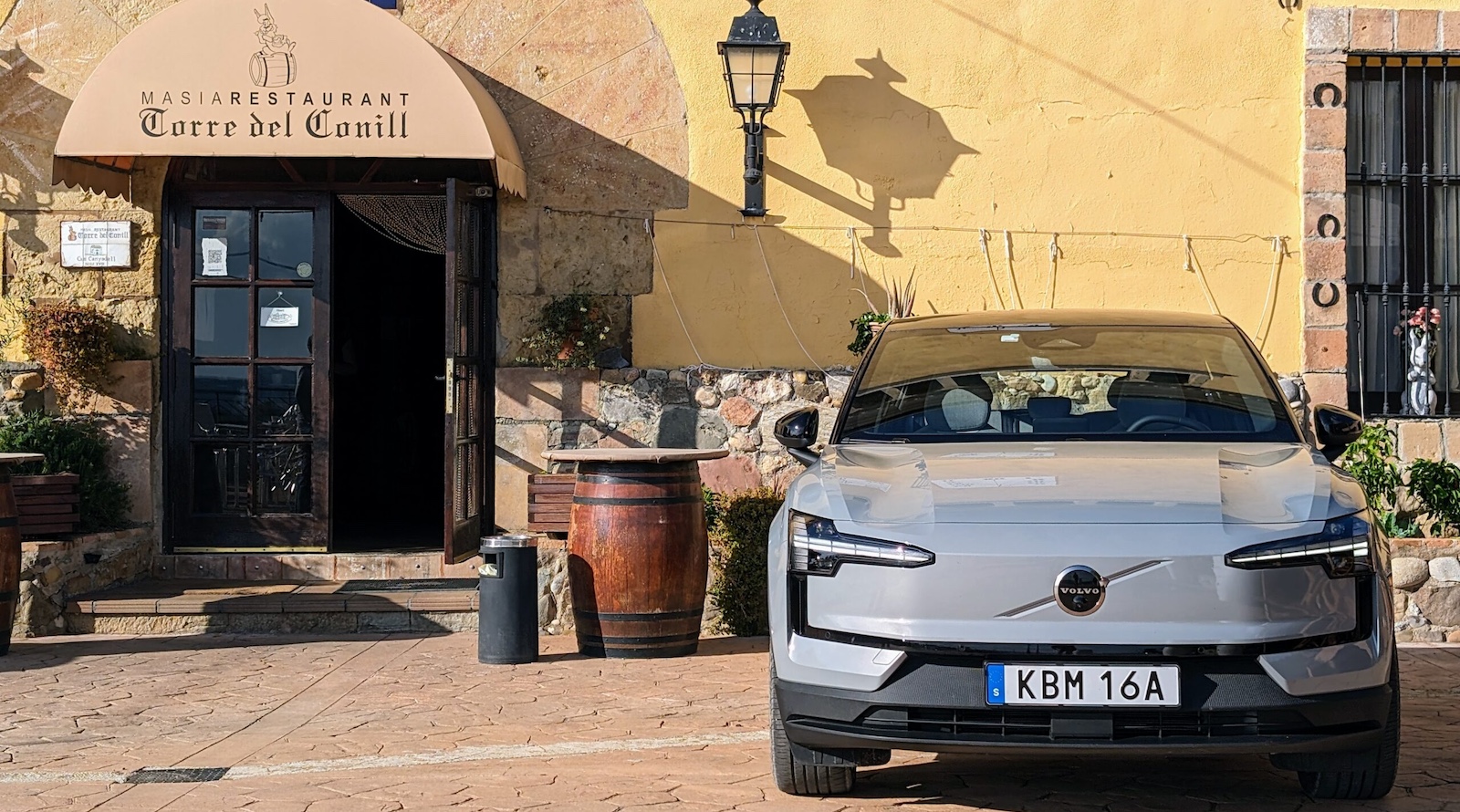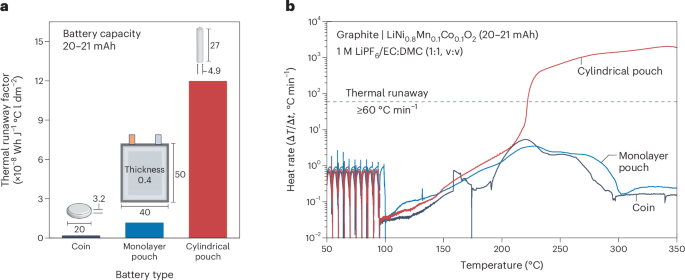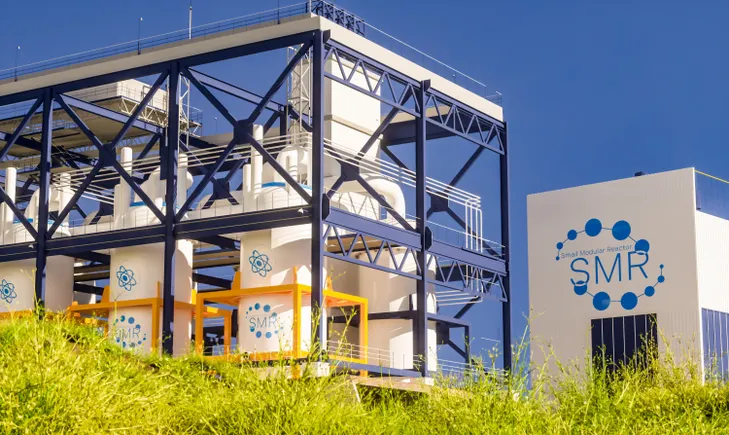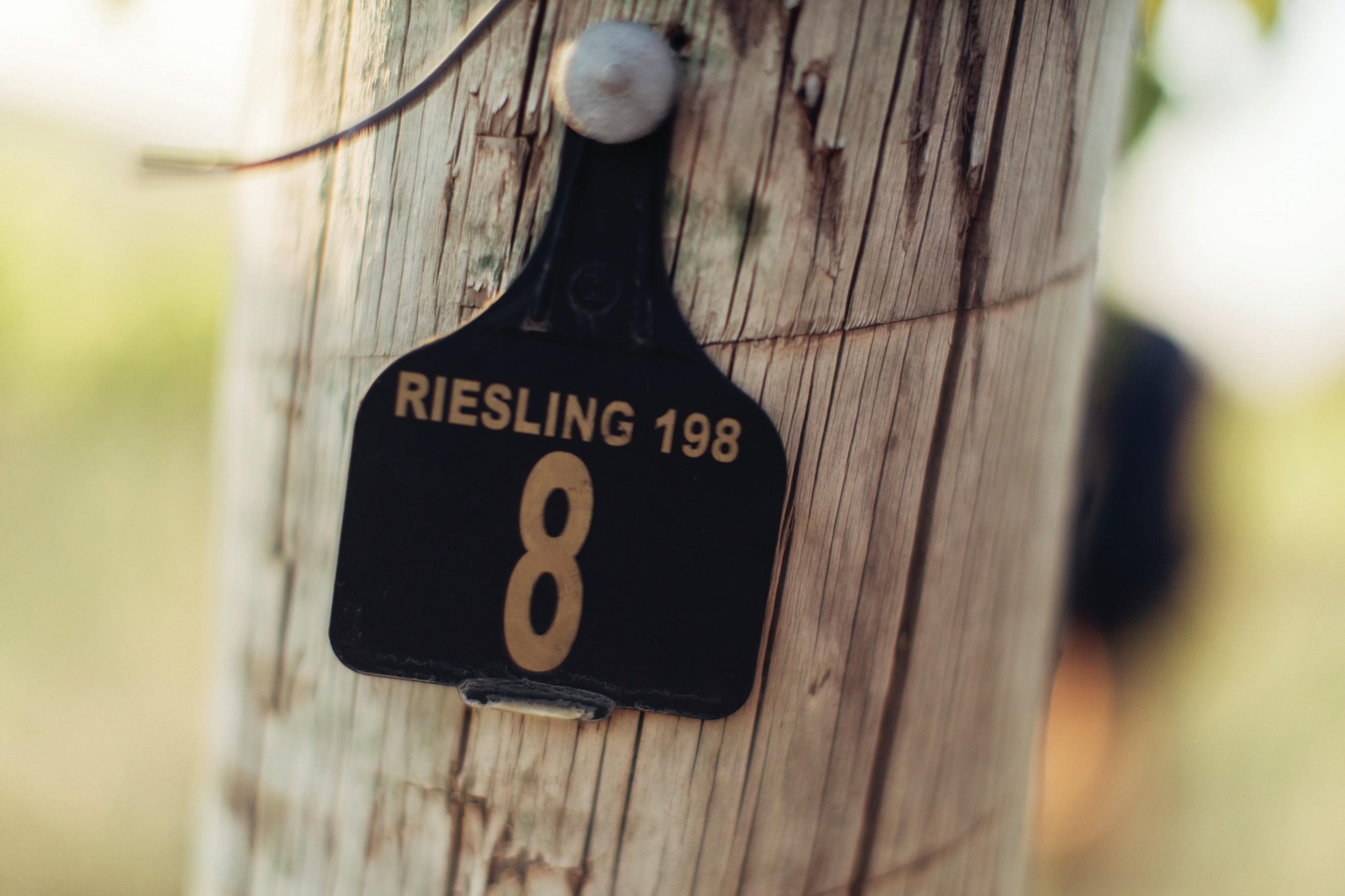With the world increasingly obsessed with craftsmanship and origin stories, Taiwan’s foray into gin is both timely and strikingly original. Leona De Pasquale speaks to the perfumer-turned-ginmaker setting the standard.
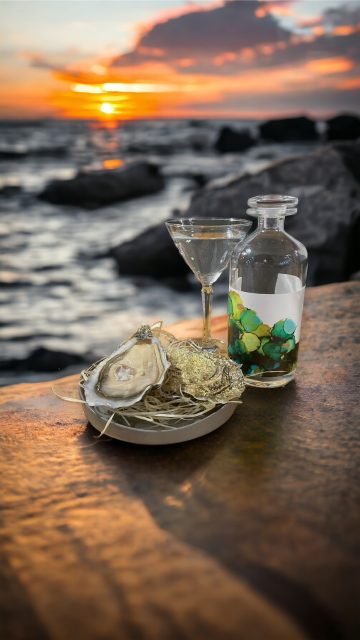
Leading the charge with a finely tuned nose and a perfumer’s intuition is Anne Scheffer, a former fashion marketer who pivoted to perfume and then to gin making. She is rewriting the rulebook on what Taiwanese gin can be.
For Scheffer, gin isn’t merely a drink. It’s a liquid fragrance.
"The way I approach gin is no different from how I build a scent," she says. "There’s a top note, a heart and a base. It’s the same language. You just taste it instead of wearing it."
Compared to whisky, gin holds greater appeal for Scheffer, as there is no barrel ageing to interfere with the spirit, allowing her to focus purely on building flavour and enjoying the process of controlled alchemy. For her, this directness made gin the perfect extension of her perfumer’s mindset. And as she soon discovered, Taiwan — with its abundant botanicals and the creative spirit of its people — was the perfect blank canvas.
Scheffer’s gin journey didn’t begin in a bar; in fact, she wasn’t even a gin drinker. After studying fashion marketing in France, she built a business importing independent European brands into Taiwan. However, the decline of bricks-and-mortar retail nudged her back to France, this time to the revered perfume schools of Versailles and Grasse.
Immersed in centuries-old scent-making techniques, Scheffer returned home to Taiwan, teaching perfume design and deconstructing icons like Chanel No. 5 for curious amateurs.
Then, in a twist worthy of a screenplay, a whisky-investor friend invited her to visit Holy Distillery, a fledgling distillery in northern Taiwan. It was 2020. Lockdowns loomed in the near future, and gin was about to change her life.
What began as a whimsical birthday project distilling a custom gin just for fun, snowballed. By 2021, Scheffer had launched her first artisan gin and won Taiwan’s national gin competition.
Beginner’s luck, one might think, but a year later her second creation 'Perfumer’s Gin Varec' went on to win the Signature Botanical Champion at the World Gin Award 2023.
While the medals stacked up, Scheffer’s real satisfaction came from the way she constructed the flavours. She intentionally chose the more difficult route. "Most people would easily love a citrusy-floral type of aroma in a perfume or gin, but I didn’t come here to make basic gin for mass markets," she says. In fact, when her gins unfolded in the glass, they were layered and intricate, like a well-orchestrated eau de parfum.
Her creations aren’t designed for mixing either, as the original idea was for her gin to pair with Japanese cuisine. As a result, they are meant to be consumed neat, to enjoy the process sip by sip, as the gin reveals its aromatic architecture.
This is why "bartenders sometimes tell me they feel useless working with my gin," she laughs. "They say it’s too complete. Not much left to add."
While Scheffer's approach is deeply personal and artisanal, the broader gin industry often operates on a different scale and philosophy. Most large-scale gin producers would normally toss 10 botanicals into a pot and call it a day. Not Scheffer.
She treats her botanicals like a perfumer would: divided into floral, wood, spice, tea, fruit, and herbal clusters. Each group is macerated and distilled separately, using specific stills for optimal expression. Some of her gins require 40–50 micro-distillations before a final blend emerges.
"It’s expensive, and yes, it’s exhausting, but that’s exactly the point," Scheffer says. "Every sip of artisan gin reflects dozens of painstaking, obsessive decisions. That’s what you’re really tasting."
Take, for example, the award-winning Varec Gin’s key ingredient: kelp.
Taiwan is surrounded by seas rich in kelp, and for years, even before it became the world’s trendy superfood, Taiwanese biotech firms have been turning it into health supplements. But there was a problem: when kelp is made into health food, whether in tablets for adults, babies, or even pets, it stinks. One of the large biotech companies enlisted Scheffer’s help to come up with a clear idea for using natural ingredients to enhance the taste of those tablets. It was then that Scheffer had the idea to use it in her gin.
“Initially it was really just a trial, and when we distilled the kelp powder, we were shocked,” says Scheffer. “The smell was so unbearable,” she laughs, recalling the moment. “It reminds me of a dead pond or a dirty fish tank that needs a good clean.”
But years of perfumery training had taught her that every great scent has something challenging, like animal musk, civet, or leather. It’s about transformation, finding an equilibrium, not simply elimination.
So she balanced the funk of kelp with lemon verbena and shiso herb, harnessing an unexpected oceanic umami that sings with Asian cuisine.
As for the base spirit, at first, Scheffer used neutral grain-based alcohol but soon turned to rum, distilled from local Taiwanese sugarcane, for its clean structure and subtle resonance.
"Taiwan is a sugar island, and there is currently a rum renaissance here," she says. "So it made sense to use the ultra-pure rum (80-90% ABV) as the base."
When it comes to choosing the right botanicals, Scheffer’s approach is refreshingly pragmatic. While some Taiwanese producers focus on using local ingredients, Scheffer takes a different approach.
"I’m not trying to prove that everything must be Taiwanese," she says. "I’m trying to find the best expression for a concept. Sometimes that’s oolong tea from the hills behind my house, sometimes it’s Bulgarian rose or Madagascan pepper. I’m not too nationalist about it. I’m a storyteller," she says.
Scheffer’s gin is currently exclusive to Taiwan, but talks with markets like the US and UK are underway. After judging at the 2024 World Gin Awards, she sees potential for her complex, elegant spirits in the UK. "People pay £100 for a Japanese gin, so there's no reason they wouldn't do the same for a Taiwanese one — if they could find it," Scheffer says.
However, Scheffer isn’t interested in mass production. She prefers smaller collaborations with restaurants and bars, offering her gins as a slow, thoughtful experience, like perfume.
Since 2023, her gins have taken on a more introspective character. Dragonland (2023) blends memories of Scheffer’s childhood in Taipei, infused with the rich flavours of Muzha Tieguanyin tea and a deep sense of nostalgia, while Orgasm (2024) layers grapefruit, rose, and spices to create a sensory journey.
For Scheffer, gin is more than a drink; it’s an emotional narrative. "Perfume taught me to build emotion through structure. Now, it’s with botanicals, but the soul of the work hasn’t changed."
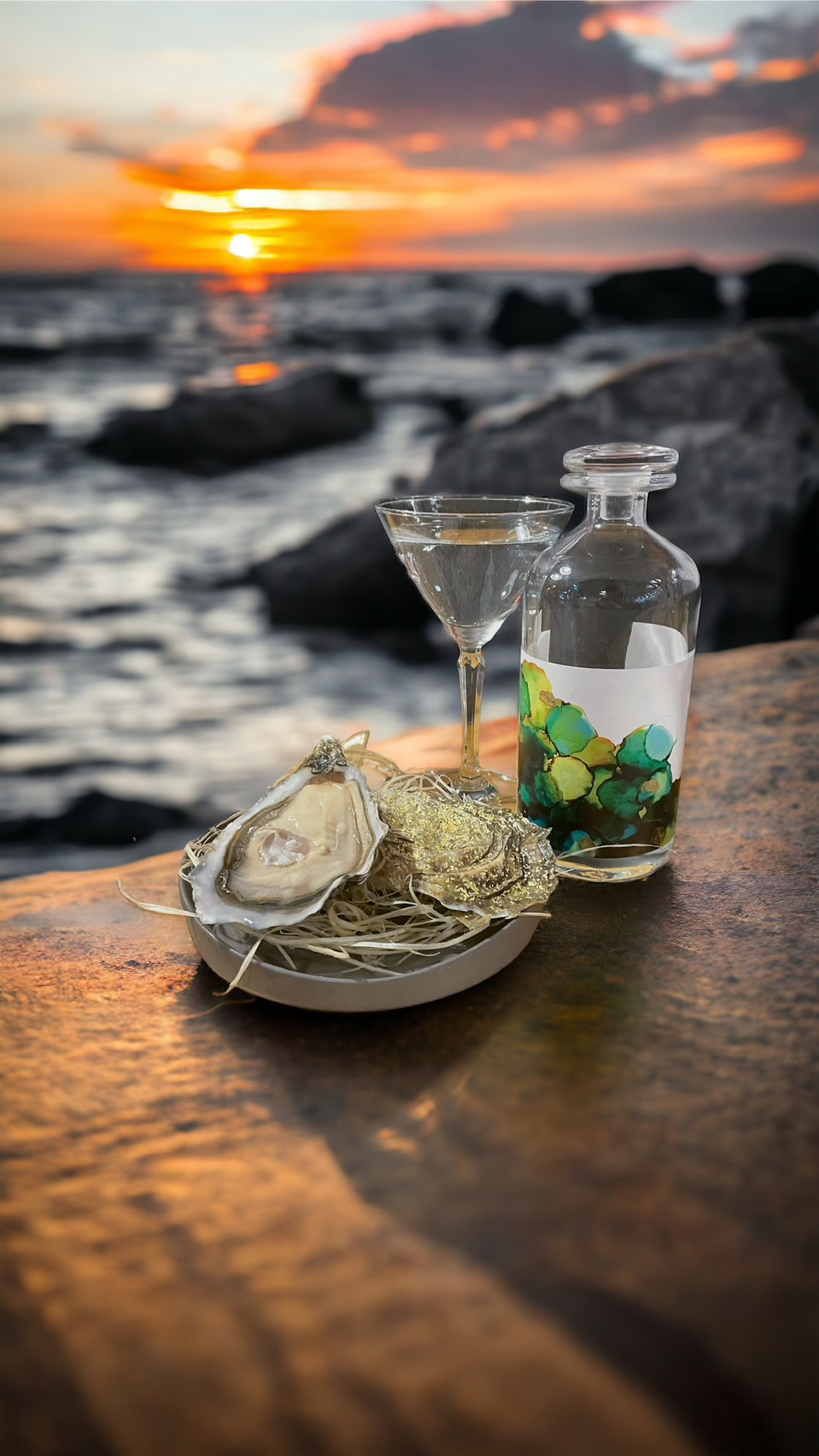
 Leading the charge with a finely tuned nose and a perfumer’s intuition is Anne Scheffer, a former fashion marketer who pivoted to perfume and then to gin making. She is rewriting the rulebook on what Taiwanese gin can be.
For Scheffer, gin isn’t merely a drink. It’s a liquid fragrance.
"The way I approach gin is no different from how I build a scent," she says. "There’s a top note, a heart and a base. It’s the same language. You just taste it instead of wearing it."
Compared to whisky, gin holds greater appeal for Scheffer, as there is no barrel ageing to interfere with the spirit, allowing her to focus purely on building flavour and enjoying the process of controlled alchemy. For her, this directness made gin the perfect extension of her perfumer’s mindset. And as she soon discovered, Taiwan — with its abundant botanicals and the creative spirit of its people — was the perfect blank canvas.
Scheffer’s gin journey didn’t begin in a bar; in fact, she wasn’t even a gin drinker. After studying fashion marketing in France, she built a business importing independent European brands into Taiwan. However, the decline of bricks-and-mortar retail nudged her back to France, this time to the revered perfume schools of Versailles and Grasse.
Immersed in centuries-old scent-making techniques, Scheffer returned home to Taiwan, teaching perfume design and deconstructing icons like Chanel No. 5 for curious amateurs.
Then, in a twist worthy of a screenplay, a whisky-investor friend invited her to visit Holy Distillery, a fledgling distillery in northern Taiwan. It was 2020. Lockdowns loomed in the near future, and gin was about to change her life.
What began as a whimsical birthday project distilling a custom gin just for fun, snowballed. By 2021, Scheffer had launched her first artisan gin and won Taiwan’s national gin competition.
Beginner’s luck, one might think, but a year later her second creation 'Perfumer’s Gin Varec' went on to win the Signature Botanical Champion at the World Gin Award 2023.
While the medals stacked up, Scheffer’s real satisfaction came from the way she constructed the flavours. She intentionally chose the more difficult route. "Most people would easily love a citrusy-floral type of aroma in a perfume or gin, but I didn’t come here to make basic gin for mass markets," she says. In fact, when her gins unfolded in the glass, they were layered and intricate, like a well-orchestrated eau de parfum.
Her creations aren’t designed for mixing either, as the original idea was for her gin to pair with Japanese cuisine. As a result, they are meant to be consumed neat, to enjoy the process sip by sip, as the gin reveals its aromatic architecture.
This is why "bartenders sometimes tell me they feel useless working with my gin," she laughs. "They say it’s too complete. Not much left to add."
While Scheffer's approach is deeply personal and artisanal, the broader gin industry often operates on a different scale and philosophy. Most large-scale gin producers would normally toss 10 botanicals into a pot and call it a day. Not Scheffer.
She treats her botanicals like a perfumer would: divided into floral, wood, spice, tea, fruit, and herbal clusters. Each group is macerated and distilled separately, using specific stills for optimal expression. Some of her gins require 40–50 micro-distillations before a final blend emerges.
"It’s expensive, and yes, it’s exhausting, but that’s exactly the point," Scheffer says. "Every sip of artisan gin reflects dozens of painstaking, obsessive decisions. That’s what you’re really tasting."
Take, for example, the award-winning Varec Gin’s key ingredient: kelp.
Taiwan is surrounded by seas rich in kelp, and for years, even before it became the world’s trendy superfood, Taiwanese biotech firms have been turning it into health supplements. But there was a problem: when kelp is made into health food, whether in tablets for adults, babies, or even pets, it stinks. One of the large biotech companies enlisted Scheffer’s help to come up with a clear idea for using natural ingredients to enhance the taste of those tablets. It was then that Scheffer had the idea to use it in her gin.
“Initially it was really just a trial, and when we distilled the kelp powder, we were shocked,” says Scheffer. “The smell was so unbearable,” she laughs, recalling the moment. “It reminds me of a dead pond or a dirty fish tank that needs a good clean.”
But years of perfumery training had taught her that every great scent has something challenging, like animal musk, civet, or leather. It’s about transformation, finding an equilibrium, not simply elimination.
So she balanced the funk of kelp with lemon verbena and shiso herb, harnessing an unexpected oceanic umami that sings with Asian cuisine.
As for the base spirit, at first, Scheffer used neutral grain-based alcohol but soon turned to rum, distilled from local Taiwanese sugarcane, for its clean structure and subtle resonance.
"Taiwan is a sugar island, and there is currently a rum renaissance here," she says. "So it made sense to use the ultra-pure rum (80-90% ABV) as the base."
When it comes to choosing the right botanicals, Scheffer’s approach is refreshingly pragmatic. While some Taiwanese producers focus on using local ingredients, Scheffer takes a different approach.
"I’m not trying to prove that everything must be Taiwanese," she says. "I’m trying to find the best expression for a concept. Sometimes that’s oolong tea from the hills behind my house, sometimes it’s Bulgarian rose or Madagascan pepper. I’m not too nationalist about it. I’m a storyteller," she says.
Scheffer’s gin is currently exclusive to Taiwan, but talks with markets like the US and UK are underway. After judging at the 2024 World Gin Awards, she sees potential for her complex, elegant spirits in the UK. "People pay £100 for a Japanese gin, so there's no reason they wouldn't do the same for a Taiwanese one — if they could find it," Scheffer says.
However, Scheffer isn’t interested in mass production. She prefers smaller collaborations with restaurants and bars, offering her gins as a slow, thoughtful experience, like perfume.
Since 2023, her gins have taken on a more introspective character. Dragonland (2023) blends memories of Scheffer’s childhood in Taipei, infused with the rich flavours of Muzha Tieguanyin tea and a deep sense of nostalgia, while Orgasm (2024) layers grapefruit, rose, and spices to create a sensory journey.
For Scheffer, gin is more than a drink; it’s an emotional narrative. "Perfume taught me to build emotion through structure. Now, it’s with botanicals, but the soul of the work hasn’t changed."
Leading the charge with a finely tuned nose and a perfumer’s intuition is Anne Scheffer, a former fashion marketer who pivoted to perfume and then to gin making. She is rewriting the rulebook on what Taiwanese gin can be.
For Scheffer, gin isn’t merely a drink. It’s a liquid fragrance.
"The way I approach gin is no different from how I build a scent," she says. "There’s a top note, a heart and a base. It’s the same language. You just taste it instead of wearing it."
Compared to whisky, gin holds greater appeal for Scheffer, as there is no barrel ageing to interfere with the spirit, allowing her to focus purely on building flavour and enjoying the process of controlled alchemy. For her, this directness made gin the perfect extension of her perfumer’s mindset. And as she soon discovered, Taiwan — with its abundant botanicals and the creative spirit of its people — was the perfect blank canvas.
Scheffer’s gin journey didn’t begin in a bar; in fact, she wasn’t even a gin drinker. After studying fashion marketing in France, she built a business importing independent European brands into Taiwan. However, the decline of bricks-and-mortar retail nudged her back to France, this time to the revered perfume schools of Versailles and Grasse.
Immersed in centuries-old scent-making techniques, Scheffer returned home to Taiwan, teaching perfume design and deconstructing icons like Chanel No. 5 for curious amateurs.
Then, in a twist worthy of a screenplay, a whisky-investor friend invited her to visit Holy Distillery, a fledgling distillery in northern Taiwan. It was 2020. Lockdowns loomed in the near future, and gin was about to change her life.
What began as a whimsical birthday project distilling a custom gin just for fun, snowballed. By 2021, Scheffer had launched her first artisan gin and won Taiwan’s national gin competition.
Beginner’s luck, one might think, but a year later her second creation 'Perfumer’s Gin Varec' went on to win the Signature Botanical Champion at the World Gin Award 2023.
While the medals stacked up, Scheffer’s real satisfaction came from the way she constructed the flavours. She intentionally chose the more difficult route. "Most people would easily love a citrusy-floral type of aroma in a perfume or gin, but I didn’t come here to make basic gin for mass markets," she says. In fact, when her gins unfolded in the glass, they were layered and intricate, like a well-orchestrated eau de parfum.
Her creations aren’t designed for mixing either, as the original idea was for her gin to pair with Japanese cuisine. As a result, they are meant to be consumed neat, to enjoy the process sip by sip, as the gin reveals its aromatic architecture.
This is why "bartenders sometimes tell me they feel useless working with my gin," she laughs. "They say it’s too complete. Not much left to add."
While Scheffer's approach is deeply personal and artisanal, the broader gin industry often operates on a different scale and philosophy. Most large-scale gin producers would normally toss 10 botanicals into a pot and call it a day. Not Scheffer.
She treats her botanicals like a perfumer would: divided into floral, wood, spice, tea, fruit, and herbal clusters. Each group is macerated and distilled separately, using specific stills for optimal expression. Some of her gins require 40–50 micro-distillations before a final blend emerges.
"It’s expensive, and yes, it’s exhausting, but that’s exactly the point," Scheffer says. "Every sip of artisan gin reflects dozens of painstaking, obsessive decisions. That’s what you’re really tasting."
Take, for example, the award-winning Varec Gin’s key ingredient: kelp.
Taiwan is surrounded by seas rich in kelp, and for years, even before it became the world’s trendy superfood, Taiwanese biotech firms have been turning it into health supplements. But there was a problem: when kelp is made into health food, whether in tablets for adults, babies, or even pets, it stinks. One of the large biotech companies enlisted Scheffer’s help to come up with a clear idea for using natural ingredients to enhance the taste of those tablets. It was then that Scheffer had the idea to use it in her gin.
“Initially it was really just a trial, and when we distilled the kelp powder, we were shocked,” says Scheffer. “The smell was so unbearable,” she laughs, recalling the moment. “It reminds me of a dead pond or a dirty fish tank that needs a good clean.”
But years of perfumery training had taught her that every great scent has something challenging, like animal musk, civet, or leather. It’s about transformation, finding an equilibrium, not simply elimination.
So she balanced the funk of kelp with lemon verbena and shiso herb, harnessing an unexpected oceanic umami that sings with Asian cuisine.
As for the base spirit, at first, Scheffer used neutral grain-based alcohol but soon turned to rum, distilled from local Taiwanese sugarcane, for its clean structure and subtle resonance.
"Taiwan is a sugar island, and there is currently a rum renaissance here," she says. "So it made sense to use the ultra-pure rum (80-90% ABV) as the base."
When it comes to choosing the right botanicals, Scheffer’s approach is refreshingly pragmatic. While some Taiwanese producers focus on using local ingredients, Scheffer takes a different approach.
"I’m not trying to prove that everything must be Taiwanese," she says. "I’m trying to find the best expression for a concept. Sometimes that’s oolong tea from the hills behind my house, sometimes it’s Bulgarian rose or Madagascan pepper. I’m not too nationalist about it. I’m a storyteller," she says.
Scheffer’s gin is currently exclusive to Taiwan, but talks with markets like the US and UK are underway. After judging at the 2024 World Gin Awards, she sees potential for her complex, elegant spirits in the UK. "People pay £100 for a Japanese gin, so there's no reason they wouldn't do the same for a Taiwanese one — if they could find it," Scheffer says.
However, Scheffer isn’t interested in mass production. She prefers smaller collaborations with restaurants and bars, offering her gins as a slow, thoughtful experience, like perfume.
Since 2023, her gins have taken on a more introspective character. Dragonland (2023) blends memories of Scheffer’s childhood in Taipei, infused with the rich flavours of Muzha Tieguanyin tea and a deep sense of nostalgia, while Orgasm (2024) layers grapefruit, rose, and spices to create a sensory journey.
For Scheffer, gin is more than a drink; it’s an emotional narrative. "Perfume taught me to build emotion through structure. Now, it’s with botanicals, but the soul of the work hasn’t changed." 







































